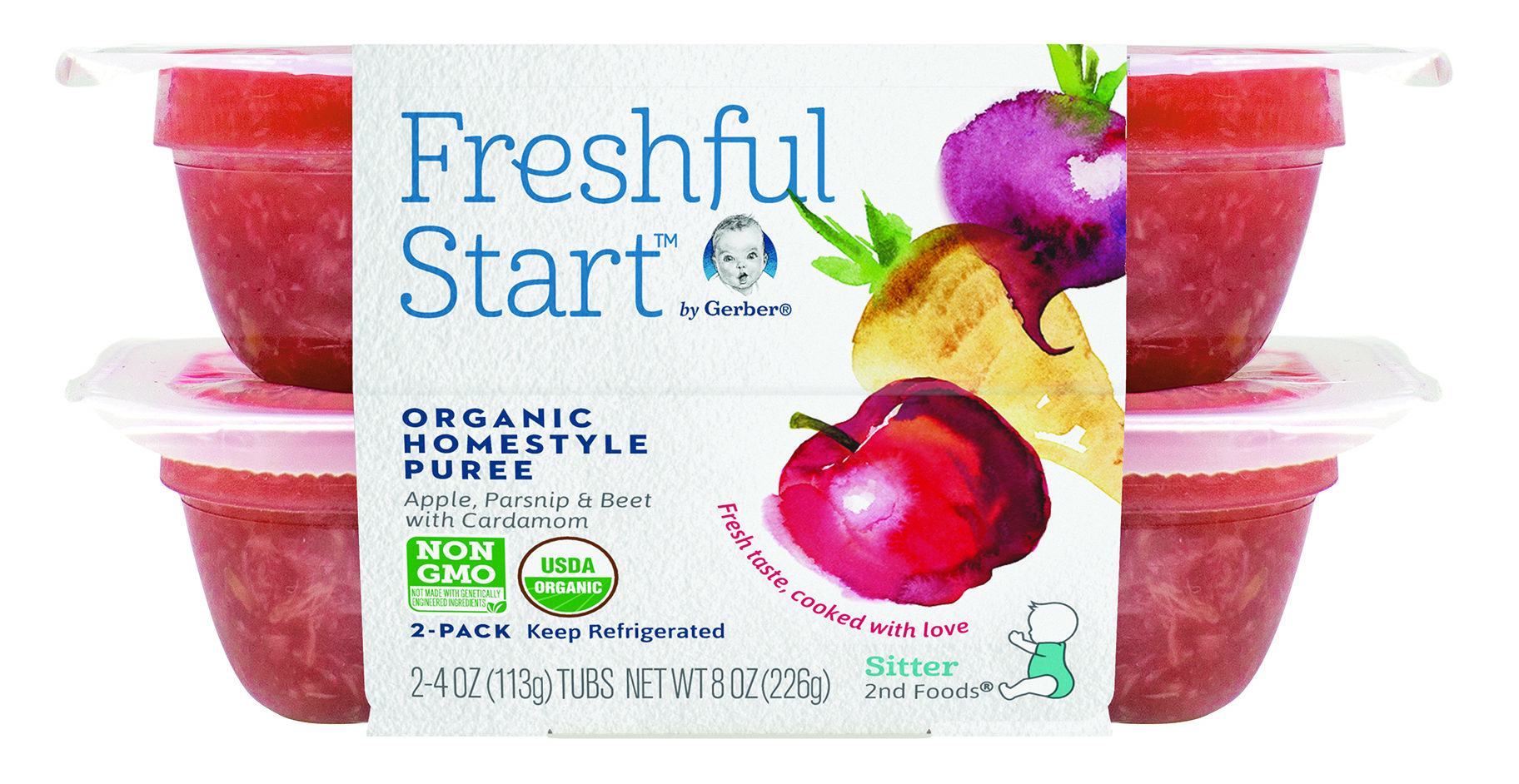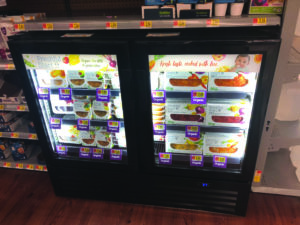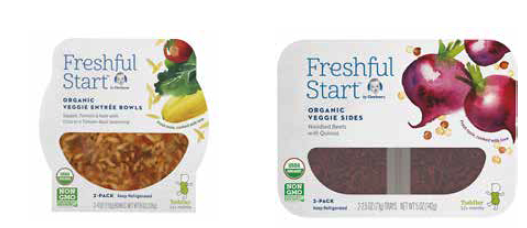
Feb 18, 2019
Gerber taps growers for groundbreaking baby food
Growers planted new crops and grew them organically in order to help baby food giant Nestlé put a groundbreaking line of baby food products in stores.
Gerber Freshful Start is a new line of baby food being stocked in refrigerators in the babies’ retail section of select Walmart stores.

The products are aimed at consumers interested in homemade baby food while offering some convenience for preparing the food.
“I think what’s interesting about it is the refrigerators are actually in the baby aisle,” said David Greci, Sr. brand manager for Nestlé Infant Nutrition, the parent company of Gerber Products. “Typically, we’ve had competitors who have launched refrigerated products before, but they haven’t been in the baby aisle.
But what’s interesting about Freshful Start is we have four product types that cover a range of different developmental or eating milestones from babies that are just starting to eat solid food to older toddlers who are able to have a more complex meal. To my knowledge, we’re the first brand to launch coolers in the aisle as well as have such a diverse range of food.”
On October 15, 2018, Gerber Freshful Start was launched at about 50 Walmart stores in the Dallas and Kansas City/northwest Arkansas markets – that’s a pretty fast track for a project that by Greci’s description was only an idea back in July 2017.
“It’s kind of working in an entrepreneurial mindset to get this launched,” Greci said. “It was kind of like running our own business.”
Growers responded with enthusiasm to the project. Nestlé buys fruit and vegetables from growers in 10 different states, but some of the growers are located near the Fremont, Michigan, where the Gerber Products was founded in 1928. Gerber became part of Nestlé in 2007, and today has processing facilities in Portsmouth, Arkansas, as well as Fremont. It also uses some third-party production.
Gerber Fresh Start required a few crops the growers hadn’t grown previously but Nestlé buyer Chris Falak tried to stick mostly with existing growers such as Crystal Valley Organics near Hart, Michigan.
“We try to reward our existing growers in any and all cases like this,” said Falak, who also serves on the board of directors for the Michigan Vegetable Council. “The response has been great. When they get an opportunity to expand their business and try something new, recognizing this is starting out small, they see the potential for growth, and they see the potential to be a part of something new.”
He added that growing vegetables was a bit of a challenge.
“It’s in smaller amounts, so it’s hard to get ramped up to a more commercial size, like what we’re used to,” Falak said. “Also, some of these items are newer to us, and some of these items we’re still learning a lot about growing. So, we’ve gone to some of our suppliers and said, ‘Let’s give it a shot.’”
Starting a new product line with new crops is an education for both growers and their customer.
“The guys that we deal with are very good at what they do, but especially when you’re dealing with organic, there are idiosyncrasies, there are those little things that can make that crop for the year, and there will be a learning curve there for those guys to get good at it,” Falak said. “Certain climates will make the growing of certain vegetables tougher, and that’s a learning process for us. We may be best grown in a more arid region and not in the humidity that we have in Michigan, and we may need to work with one of our suppliers out of Colorado for certain crops.”
Parsnips were new to Gerber’s grocery list, and beets hadn’t been there in a long time.

“Going way back into Gerber’s history, we grew conventional beets in the ’90s,” Falak said. “And consumers for whatever reason went away from that. Now, as we look at some of the millennials and the generation Zs, beets are coming back into favor.”
Greci said the trends seem ripe for the Gerber Freshful Start.
“Homemade baby food is becoming more commonplace and I think more acceptable to parents, especially parents of the younger generation, what we call generation Z, which is the cohort that came after millennials,” he said. “They typically over-index in homemade baby food preparation, so to them, homemade baby food is kind of the gold standard.”
While such individuals’ “gold standard” for baby food is homemade from scratch, Greci said, Freshful Start provides an easier option.
“Fresh Start is trying to balance that high-quality refrigerated product with easier and convenient prep so that you don’t have to take the time to wash, prep, peel and steam all the ingredients to make baby food,” he said.
More than a month after its launch, Greci said the initial response by consumers was good.
“We’re just starting to see the initial results, and they look encouraging,” Greci said. “I think at least for the time being we’re going to be in that 50-store test mode, and then we’re going to make a decision about what the next steps are as far as how do we expand it, and that will come from discussions internally as well as with our partner Walmart.”
Consumer acceptance could mean a windfall for the fruit and vegetable growers supplying Gerber.
“We don’t know exactly how quickly or at what pace it will grow, and as it does, we will go to our existing growers,” Falak said.
– Stephen Kloosterman, VGN Associate Editor






